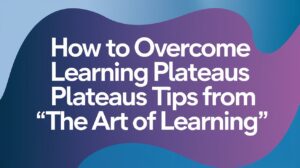Introduction
Self confidence is one of those key attributes that influence almost every sphere of our life: from our personal relationships to our success in the workplace. It is helpful in confronting challenges, making decisions, and pursuing goals with a sense of certainty. Despite its importance, self-confidence is poorly understood, and several myths are perpetuated that interfere with personal growth.
These myths about self-confidence not only mislead people but also discourage them from developing real self-assurance. We look at five of the most rampant myths about self-confidence you really don’t want to listen to, in this article-helping us understanSelf-Confidenced what confidence is and how to build on it.
Myth 1: Self-Confidence Means Being Outgoing
Probably the most universal myth about self-confidence equates it with the ability to be outgoing or extroverted. A lot of people believe that the confident are those who are always the life of the party, the ones who talk the loudest, or who always dominate conversations. In fact, however, nothing could be further from the truth.
Self-confidence refers to believing in one’s abilities, judgments, and worth. It is not necessarily a personality-type question. Although extroverts naturally show themselves confidently in social situations, introverts may just be as confident, but perhaps less overtly. Actually, quiet confidence is every bit as authentic as its more visible cousins.
Think about those people who are more introspective and reserved, yet their works are commendable, such as writing, art, or solving a problem. Their confidence speaks through their work, though they may not be the most vocal in a group setting. For that reason, self-confidence does not always involve an outgoing personality; it is a feeling of security in oneself-whatever kind of personality a person has, whether an introvert or extrovert.
Myth 2: Self-Confidence Is Innate
Another common myth is that self-confidence is inborn-a condition of either having or not having. This kind of myth can easily be discouraging to people who doubt themselves, as it indicates that they are not “wired” to be confident.
In fact, self-confidence is something that is likely to build up over time with experience and learning and personal development. Most confident people today may have definitely experienced difficult and distressing challenges that shape self-assurance. Confidence actually grows by getting through difficult moments, achieving goals, and learning ways of trusting oneself.
Besides, one can develop self-confidence through some deliberate practices: setting and achieving small goals, acquiring new skills, practicing self-reflection. It is a skill to be developed through practice over time, rather than an inborn trait. With this in mind, people will be able to perceive self-confidence as a reality achievable by anyone, rather than an unattainable gift for the select few.
Myth 3: Self-Confidence = Arrogance
One of the more damaging myths is the belief that self-confidence is a synonym for arrogance. Because of this myth, too many individuals refrain from exuding confidence lest they be labeled boastful or conceited.
But there is a big difference between self-confidence and arrogance. Confidence is really based upon self-assurance and a healthy understanding of one’s strengths and abilities, not at the expense of putting others down. It involves being comfortable in your own skin and making decisions based on your values and knowledge.
On the other hand, arrogance is often derived from insecure feelings and/or an underlying need for survival through belittling others. An arrogant person might brag about his abilities and seek validation through superiority. A confident one feels secure and would acknowledge all that he does well or not.
Consider leaders who inspire their teams through leading with confidence, yet at the same time are humble and respectful. They need not make claims to their greatness nor tear others down to build themselves up. Real confidence shows up in what is done and how others are developed around them. Knowing this difference allows us to understand that real self-confidence is not conceitedness but authenticity and confidence in one’s self.
Myth 4: Self-Confidence Is the Same as Self-Esteem
A very confusing myth is that of mistaking self-confidence for self-esteem. Although the two notions are interrelated, they are separate from one another.
Self-confidence is essentially a belief in one’s abilities or judgment in specific areas. A person may feel self-confident about making a presentation in the workplace or in playing a specific sport. Self-esteem is a more general concept that encompasses how one feels about oneself regarding one’s inner self-worth.
One can have high self-confidence in select areas yet still grapple with problems of self-esteem. For instance, one might be a highly confident public speaker yet feel quite inadequate with regard to physical appearance or personal relationships. This is an important distinction to draw because it emphasizes that the building of self-confidence regarding specific issues does not solve deeper problems of self-esteem.
In working toward a more rounded sense of self, there is a need to foster both self-confidence and self-esteem. This may require focusing on certain skills and competencies while simultaneously going through some processes of self-reflection, seeking support, and self-compassion to enhance overall self-worth.
Myth 5: Self-Confidence Requires Perfection
The last myth to be discussed here is that confidence means perfection. Many people think that self-confidence can only be achieved if one performs in a flawless manner with no string of mistakes or an allowance of any kind of vulnerability.
As it is, this perfectionist frame of mind can actually undermine self-confidence by creating unrealistic expectations and instilling a fear of failure. Actually, self-confidence isn’t about perfection; it’s about resiliency and an accepting attitude toward mistakes. It’s about understanding that all people have strengths and weaknesses; that it’s all right to feel challenged, and that growth comes from embracing these challenges, not evading them.
Take, for example, athletes, businessmen, and artists who had to go through setbacks and failures along the road to success. Perfection is not what gives them confidence but the ability to go on despite setbacks, adapting accordingly and continuing onward.
Rather than striving for perfection, much is to be learned from being kind to oneself and maintaining a growth mindset. In other words, imperfections must be permitted, one must learn from failure, and even minor successes should be celebrated. In this manner, you will be able to develop a much more constant and realistic self-confidence which does not rely on impossible standards.
Conclusion
Self-confidence plays an important part in personal and professional success, yet there is much misunderstanding because a considerable number of myths are hanging over it. Discarding these-we may be translating the idea that one’s self-confidence should be outgoing, natural, or equated with arrogance-we will see what real self-confidence looks like.
It is only when one recognizes that self-confidence is not about perfection or extrovertedness but about trusting oneself, accepting imperfections, and learning from challenges that one can work on building a much healthier and more genuine sense of self-assurance.
As you forge ahead in life and continue to develop yourself, do not forget to question at least some of these prevalent myths and work on building a self-confidence that is true to yourself. Pass it along to your friends who you think might get some useful insights from it, and keep reading for more ways on how to enhance your self-confidence and self-esteem.








1 thought on “5 Common Myths About Self Confidence You Should Ignore”